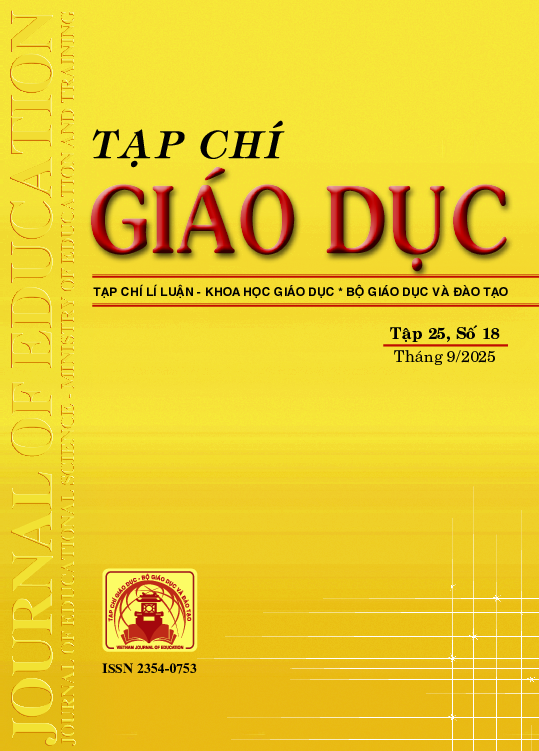Ảnh hưởng của sự gắn kết với công việc đến kết quả thực hiện công việc của giảng viên các trường đại học tự chủ
Tóm tắt
In the context of Vietnamese universities moving towards the autonomous model, the requirement for effective teaching, research and staff development activities has become more urgent than ever. Autonomy helps schools to be flexible in management, but at the same time, it also exerts great pressure on the quality and efficiency of operations. This study examines the impact of work engagement on the job performance of faculty members at autonomous universities in Vietnam. Data were collected from 381 lecturers at three autonomous universities in Ho Chi Minh City. Work engagement was measured using the Utrecht Work Engagement Scale (UWES), while job performance was assessed based on Borman and Motowidlo’s framework, which distinguishes between task performance and contextual performance. The results of the structural equation modeling (SEM) indicate that engagement in teaching has a positive and statistically significant effect on both components of job performance, whereas engagement in research does not show a significant predictive role. Based on these findings, the study proposes managerial implications to enhance faculty work performance in the context of university autonomy.
Tài liệu tham khảo
Borman, W. C., & Motowidlo, S. J. (1993) Expanding the criterion domain to include elements of contextual
performance. In N. Schmitt & W.C. Borman (Eds.), Personnel selection in organizations. San Francisco: JosseyBass.
Campbell, J. P. (1990). Modeling the performance prediction problem in industrial and organizational psychology.
In M. D. Dunnette & L. M. Hough (Eds.), Handbook of industrial and organizational psychology (Vol. 1, 2nd
ed., pp. 687-732). Palo Alto, CA: Consulting Psychologists Press.
Kahn, W. A. (1990). Psychological conditions of personal engagement and disengagement at work. Academy of
Management Journal, 33(4), 692-724. https://doi.org/10.2307/256287
Meyer, J. P., & Allen, N. J. (1997). Commitment in the workplace: Theory, research, and application. Sage
Publications.
Munir, M., Khalid, S., Haleem, M. S., & Dad, A. M. (2023). Workplace Stress and Employee Job Satisfaction
Among University Teachers: Role of Work Engagement. Migration Letters, 20(S8), 1600-1612.
Organ, D. W. (1989). Organizational citizenship behavior: The good soldier syndrome. Lexington Books.
Perrotta, G. (2021). Academic stress and workload management in autonomous universities: A psychological
perspective. International Journal of Education and Research, 9(2), 88-97.
Ryan, R. M., & Deci, E. L. (2000). Self-determination theory and the facilitation of intrinsic motivation, social
development, and well-being. American Psychologist, 55(1), 68-78. https://doi.org/10.1037/0003-066X.55.1.68
Saks, A. M. (2006). Antecedents and consequences of employee engagement. Journal of Managerial Psychology,
(7), 600-619. https://doi.org/10.1108/02683940610690169
Schaufeli, W. B., Salanova, M., Gonzalez-Roma, V., & Bakker, A. B. (2002). Defining and measuring work
engagement: Bringing clarity to the concept. Journal of Organizational Behavior, 23(3), 293-315.
https://doi.org/10.1002/job.141
Sittar, K. (2020). Relationship of Work Engagements and Job Performance of University Teachers. Bulletin of
Education and Research, 42(1), 167-183.
Winarno, A., & Hermana, D. (2019). Commitment, work engagement, and research performance of lecturers, in
Indonesia Private Universities. MOJEM: Malaysian Online Journal of Educational Management, 7(4), 45-63.
Tải xuống
Đã Xuất bản
Cách trích dẫn
Số
Chuyên mục
Giấy phép

Tác phẩm này được cấp phép theo Ghi nhận tác giả của Creative Commons Giấy phép quốc tế 4.0 .












